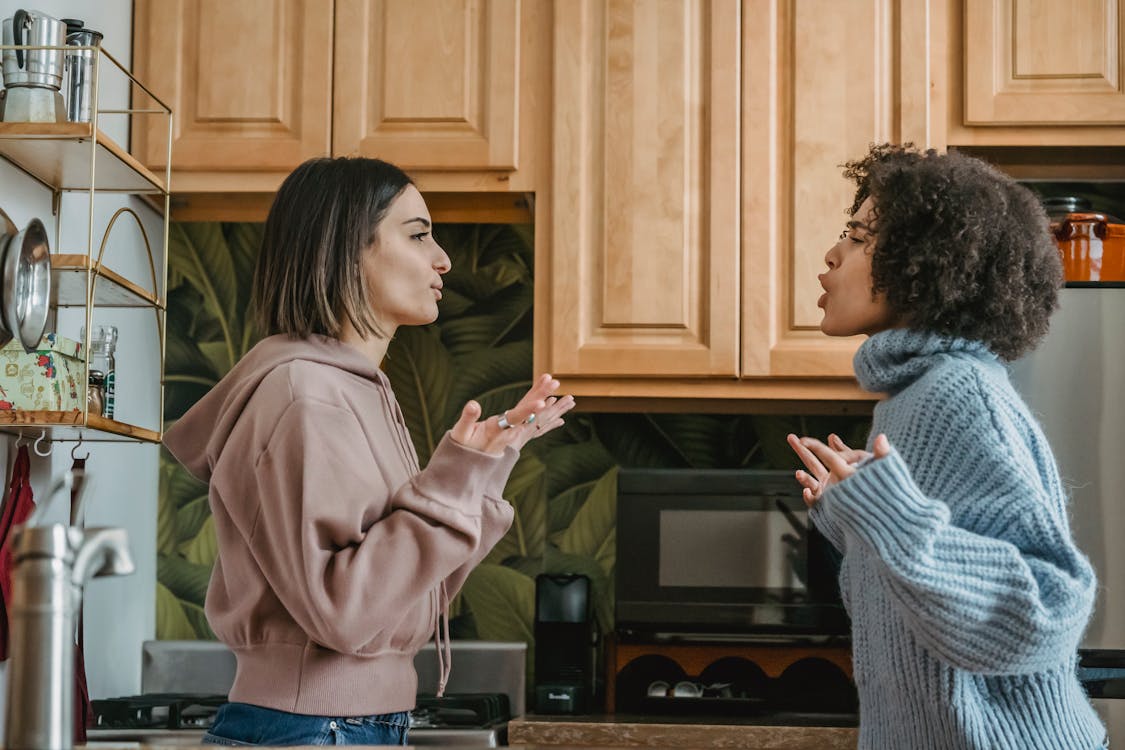🧑🤝🧑Korean Level 1, Activity 12: 룸메이트 찾기/ Roommate Search

Description:
In this activity, students will listen to a conversation and identify the good and bad things about having a roommate. They will also attempt to find a roommate who has similar living habits and routines.
Semantic Topics:
Roommate(룸메이트), living habits(생활습관), routine, match, concern(걱정), 기숙사(dorm), Korean living culture(한국 생활)
NCSSFL-ACTFL World-Readiness Standards:
- Standard 1.1: Students engage in conversations, provide and obtain information, express feelings and emotions, and exchange opinions.
- Standard 1.2: Students understand and interpret written and spoken Korean on a variety of topics.
Idaho State World-Readiness Standards:
- COMM 1.1 – Interact and negotiate meaning (spoken, signed, written conversation) to share information, reactions, feelings, and opinions.
- CLTR 1.2 – Explain the relationship between cultural practices/behaviors and the perspectives that represent the target culture’s view of the world.
NCSSFL-ACTFL Can-Do Statements:
- I can ask and answer questions about what kinds of chores I do at home.
- I can explain some of my concerns to my friends.
- In my own and Korean culture, I can compare and contrast how living situations differ among college students.
Materials Needed:
- Projector (optional)
- iPad or Computer
- Google Slides
Warm-Up:
Begin by introducing the Can-Dos for today’s activity.
오늘의 학습목표를 소개하는 것으로 수업을 시작하세요.
Students will discuss how living situations among college students differ in Korea compared to their own culture.
학생들은 한국 대학생과 자기 나라 대학생의 생활이 어떻게 다른지 이야기합니다.
Main Activity:
Students will listen to a script and answer questions.
지문을 듣고 질문에 대답하세요.
- Script:
- 세준: (Subin, it has been a while. How are you these days?) 수빈 씨, 오랜만이에요. 요즘 어떻게 지내요?
- 수빈: (Yes, I am doing well, but it has been very stressful.) 네, 잘 지내고 있어요. 그런데 조금 스트레스가 있어요.
- 세준: (Why?) 왜요?
- 수빈: (My roommate does not clean often.) 룸메이트가 청소를 자주 안 해요.
- 세준: (Really? How often do you clean?) 진짜요? 수빈 씨는 얼마나 자주 청소해요?
- 수빈: (I do it twice a week.) 저는 일주일에 두 번이나 해요.
- 세준: (Yeah, then it is really stressful.) 그래요, 그럼 진짜 스트레스예요.
- 수빈: (Yes, He doesn’t wash the dishes or take out the trash. So I do chores everyday.) 네, 그리고 설거지도 안 하고 쓰레기도 안 버려요. 그래서 내가 매일 집안일 해요.
- 세준: (Geez, then how do you live together?) 아유, 그럼 어떻게 같이 살아요?
- 수빈: (It’s really hard, but he cooks well, do laundry well, and have fun. How am I?) 정말 힘들어요. 그런데 요리도 잘 하고 빨래도 잘 하고 재미있어요. 저 어떻게 해요?
- 세준: (Then talk to your roommate and you will be fine.) 그럼 룸메이트한테 한번 얘기해 보세요. 그럼 괜찮을 거예요.
- 수빈: (Yes, okay. Thank you.) 네, 그럴게요. 고마워요!
Answer the following questions(질문에 대답하세요):
- What is the conversation about? 대화는 무엇에 대한 내용입니까?
- How often does Subin do the cleaning? 수빈이는 얼마나 자주 청소를 합니까?
- List three good things and three bad things about Subin’s roommate.
수빈이의 룸메이트의 좋은 점 세가지와 나쁜 점 세 가지를 이야기해 보세요. - What will Subin most likely do after the conversation?
이 대화 후에 수빈이는 무엇을 할까요?
Students will be given information about Sunhwa’s living habits.
학생들에게 선화의 생활습관에 대한 정보가 주어집니다.
They will be provided with dialogue, and they will fill in the blanks based on Sunhwa’s living habits.
대화가 주어지면 선화의 생활습관에 맞춰 빈 칸을 채우세요.
At the end of the conversation, students will determine whether Sunhwa and Hyojoo are a good match as roommates.
대화가 끝나면 선화와 효주가 룸메이트로 잘 어울리는지 판단하세요.
Wrap-Up:
Wrap-up questions (Pick a few you’d like to ask):
- What kind of living habits do you have?
- 어떤 생활 습관을 가지고 있나요?
End of Activity:
- Read Can-Do statements once more and have students evaluate their confidence.
- (Use thumbs up/thumbs down or download our student cards.)
- Encourage students to be honest in their self-evaluation.
- Pay attention, and try to use feedback for future labs!
NCSSFL-ACTFL Can-Do Statements:
- I can ask and answer questions about what kinds of chores I do at home.
- I can explain some of my concerns to my friends.
- In my own and Korean culture, I can compare and contrast how living situations differ among college students.

